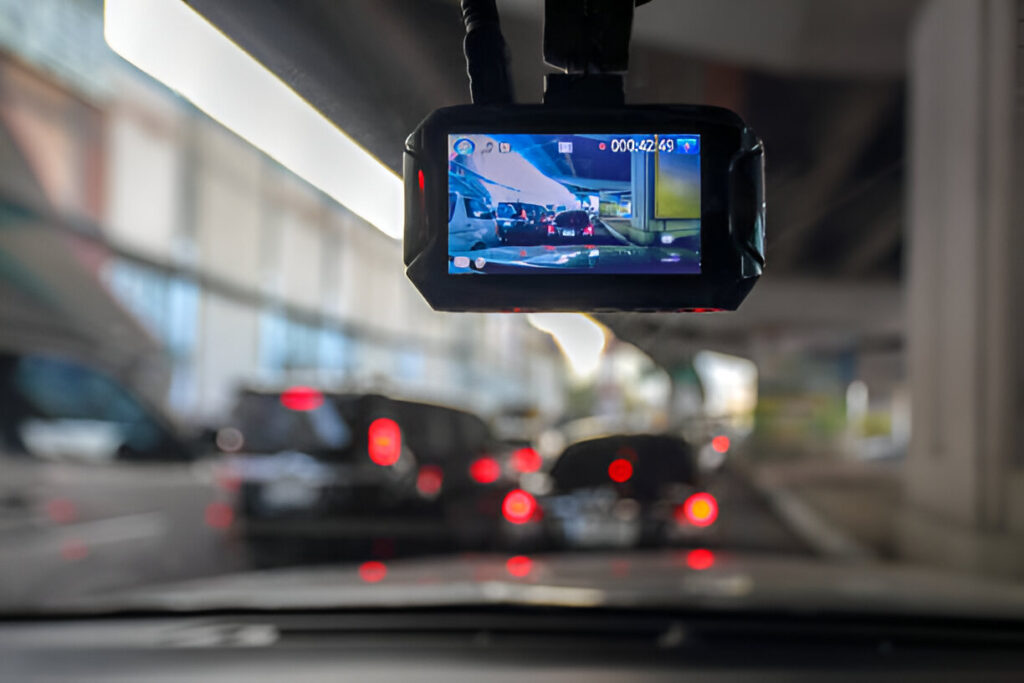Dashcams, or dashboard cameras, have become increasingly popular among drivers worldwide. These small, easily installed devices continuously record the view through a vehicle’s front windscreen and sometimes rear or interior views. While they serve various purposes, one of the most significant roles of dashcams is in car accident claims. This article explores how dashcams can influence car accident claims, their benefits, legal considerations, and tips for using them effectively.
The Importance of Dashcams in Car Accident Claims
As stated by The Embry Law Firm, dashcams provide real-time video evidence that can be invaluable in car accident claims. Here’s why they are crucial:
- Objective Evidence: Dashcams offer an unbiased account of events leading up to, during, and after an accident. Unlike witness testimonies, which can be subjective and unreliable, dashcam footage provides clear, factual evidence.
- Accurate Accident Reconstruction: The footage from a dashcam can help reconstruct the accident scene accurately. It can show the speed of the vehicles, road conditions, weather, traffic signals, and the actions of other drivers, all of which are critical in determining fault.
- Protection Against Fraud: Dashcams can protect drivers from fraudulent claims, such as staged accidents or false injury claims. The presence of a dashcam can deter individuals from attempting insurance fraud.
- Support for Insurance Claims: Having dashcam footage can streamline the insurance claim process. It provides clear evidence to support your version of events, which can expedite the resolution and increase the likelihood of a favorable outcome.
Benefits of Using Dashcams
Using a dashcam offers several advantages beyond accident claims, including:
- Enhanced Safety: Knowing that their actions are being recorded can encourage drivers to be more cautious and responsible on the road, potentially reducing the likelihood of accidents.
- Monitoring Teen Drivers: Parents can use dashcams to monitor their teenage drivers, ensuring they adhere to safe driving practices.
- Recording Road Trips: Dashcams can capture scenic drives and road trips, providing a record of your travels that can be enjoyable to review later.
- Parking Protection: Some dashcams have motion sensors and can record while the vehicle is parked, capturing incidents like vandalism or hit-and-run accidents.
Legal Considerations
While dashcams offer many benefits, there are legal considerations to keep in mind:
- Privacy Laws: Different countries and states have varying laws regarding recording conversations and video. In some jurisdictions, recording audio without the consent of all parties is illegal. Always familiarize yourself with local laws to ensure compliance.
- Admissibility in Court: Dashcam footage is generally admissible in court, but it must meet certain criteria. The footage should be clear, unaltered, and relevant to the case. Courts will also consider whether the dashcam was installed and used legally.
- Insurance Company Policies: Some insurance companies may offer discounts for vehicles equipped with dashcams, while others may have specific requirements for using dashcam footage in claims. Check with your insurer for their policies on dashcam use.
Tips for Using Dashcams Effectively
To maximize the benefits of your dashcam, follow these tips:
- Choose the Right Dashcam: Select a dashcam with high resolution, wide-angle lenses, and good low-light performance to ensure clear footage. Features like GPS, speed tracking, and motion detection can also be valuable.
- Proper Installation: Install the dashcam securely in a location that does not obstruct your view. Ensure it has a clear view of the road and any potential blind spots.
- Regular Maintenance: Check your dashcam regularly to ensure it is functioning correctly. Clean the lens and ensure the memory card has enough space to store footage.
- Save Important Footage: In the event of an accident, immediately save the relevant footage to prevent it from being overwritten. Many dashcams have a feature to lock important files to prevent accidental deletion.
- Backup Your Data: Regularly back up your dashcam footage to a separate device or cloud storage to ensure you have access to it when needed.
Real-Life Scenarios
To illustrate the impact of dashcams in car accident claims, consider the following real-life scenarios:
- Disputed Red Light: In an accident where one driver claims they had the green light, and the other insists they had the right of way, dashcam footage can provide a definitive answer by showing the traffic signal at the time of the accident.
- Hit-and-Run Incidents: In cases where a driver flees the scene, dashcam footage can capture the vehicle’s license plate, make, and model, aiding law enforcement in identifying and apprehending the responsible party.
- False Injury Claims: Dashcams can protect against individuals who stage accidents or exaggerate injuries to file fraudulent claims. Clear video evidence can disprove false allegations and prevent unjust compensation.
The role of dashcams in car accident claims is increasingly significant as they provide clear, objective evidence that can be crucial in determining fault and supporting insurance claims. By offering an accurate account of events, dashcams protect drivers from fraudulent claims and streamline the legal process. However, it’s essential to be aware of legal considerations and ensure proper use and maintenance of your dashcam. By doing so, you can maximize its benefits and enhance your safety on the road.
Investing in a quality dashcam and using it responsibly can provide peace of mind, knowing that you have a reliable witness in the event of an accident. As dashcam technology continues to advance, its role in car accident claims will likely become even more pivotal, making it an indispensable tool for drivers everywhere.



